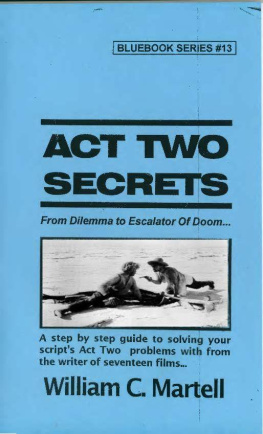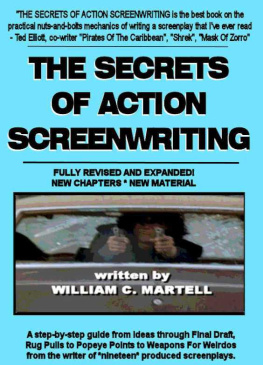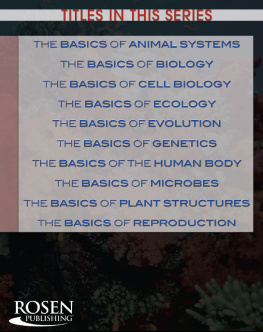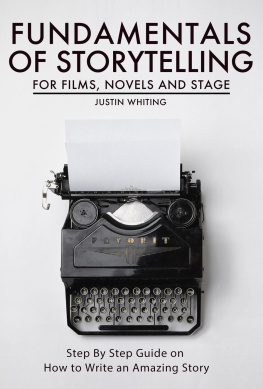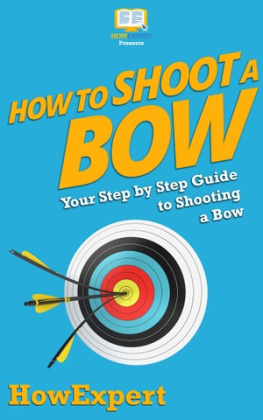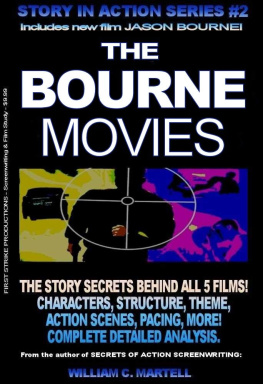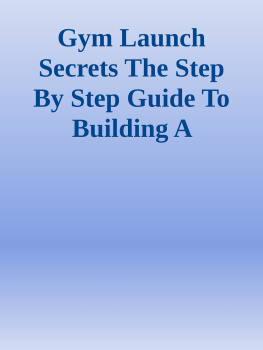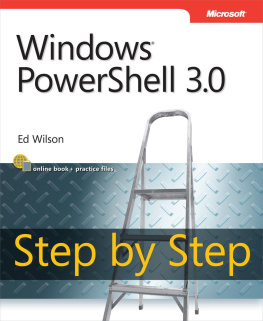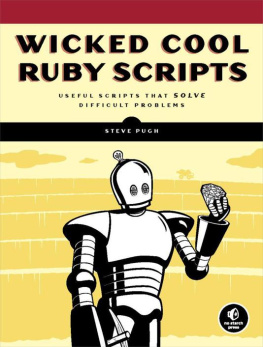SCRIPT SECRETS
BLUE BOOK #13
ACT TWO SECRETS
by
William C. Martell
FIRST STRIKE PRODUCTIONS
ACT TWO SECRETS
New Revised Edition
ISBN:
Copyright 2002, 2013 by William C. Martell
All rights reserved. No part of this book may be reproduced or transmitted in any form or by any means, electronic, mechanical, or telepathic, including photocopying, recording, or any information and retrieval system, without the prior written permission of the Writer, except by a reviewer who may quote brief passages in a review.
First Strike Productions
11012 Ventura Blvd #103
Studio City, CA 91604
http://www.ScriptSecrets.Net
Cover art is a public domain frame from Greed (1924).
This Blue Book is dedicated to my friend Duane Whitaker who gave me his copy of Andromeda Strain.
ACT: 2, SCREENWRITER: 0
Having problems with the middle of your script? Running out of steam halfway through? Getting caught in subplots and slow spots? Fighting to get through the middle of your story? You may be having Act Two problems!
Act Two has a reputation for being the hardest to write. It's usually twice as long as Act One or Act Three, so it takes twice as much story and twice as much energy. Act One is often easy to write because it's all fresh material: you're inventing your characters and the situations, and that's exciting! You are creating! Act Three often seems easy because it's the fun stuff: chases and pratfalls and solutions to all of those problems you've created. Happy endings, or tragic ones. Many writers start with a great ending and use that to come up with their story. Endings and beginnings seem to have a logical connection... but middles? How do you get through that long stretch that comes between creating the problem and solving it?
Logically Act Two should be the easiest to write - that's where all of the conflict is. If Act One sets up the conflict and Act Three resolves the conflict, than Act Two *is* the conflict. Conflict is the basis of story, so if you're having Act Two problems you may really be having story problems. You may not have enough conflict, or your conflict may not be strong enough, or you may not really know what your conflict is, or your conflict may be too easy to resolve, or your conflict may not have any emotional component.
Eight time Oscar nominated screenwriter and director Billy Wilder (he only won six Oscars) said...
Act One: You get your cat up a tree.
Act Two: You throw rocks at him.
Act Three: You get him down from the tree.
So Act Two is all about throwing rocks - escalating the conflict of being up that tree. Act Two is the conflict act!
Conflict is a basic element of story. Here is my basic definition of that thing we call Story: A story is when a character is forced to solve an emotional conflict (character arc) in order to solve an outer conflict (plot). Here are some loglines for some of the films we will use as examples - can you spot the emotional conflict and outer conflict?
A city born policeman has to overcome his fear of water in order to protect his family and a resort town from a giant man-eating shark. ("Jaws")
A farm girl learns to appreciate her home and family after a tornado whisks her away to an alien world run by witches. ("The Wizard Of Oz")
A helicopter pilot doesnt know who he can trust when an alien being starts assimilating the crew of a remote arctic research facility. (The Thing)
A shy farm boy becomes a swash-bucking hero and teams up with a giant and a swordsman out for revenge in order to save the woman he loves from marriage to an evil Prince. (The Princess Bride)
A completely disfunctional family must band together and take a road trip in their broken down car so that the youngest daughter can fulfill her beauty pageant dreams. (Little Miss Sunshine)
A murdered mans ghost must find a way to warn the woman he loves that she is in danger... before she becomes a murder victim as well. (Ghost)
A high school kid takes a pretty cool looking time machine back to his parents high school days... accidentally breaking up their relationship and maybe ending his existence! (Back To The Future)
A 12 year old boy gets his wish of becoming and adult... but now must learn to survive in the adult world until he finds a way to reverse his wish. (Big)
A struggling actor has to get over his ex-girlfriend and broken heart before he can find love in the Hollywood singles scene. ("Swingers")
In order to keep Act Two hopping you need both kinds of conflict. We'll take a closer look at both emotional and physical conflict in the next chapters as well as other solutions to common Act Two problems. We'll also look at midpoints, act enders, how to keep momentum going in Act Two, driving forces, the escalator of doom, the importance of deadlines, several types of common plot devices, the two kinds of Act Twos, why you should name your acts, how to insure good pacing, and the subplot prism. Hopefully all of your Act Two problems will be solved... except for that pesky writing part!

